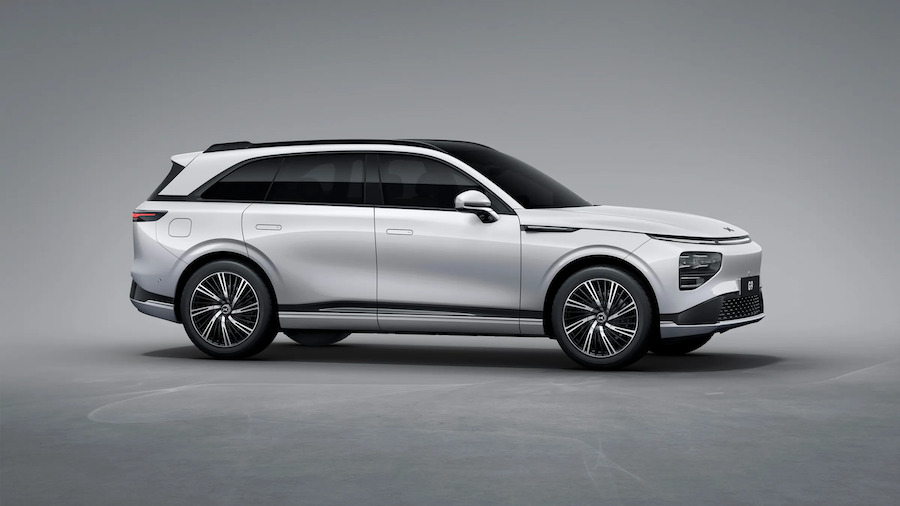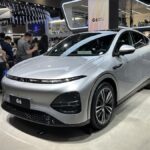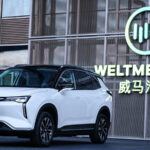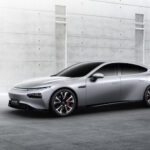Volkswagen Reveals Details of Collaborations with Xpeng and SAIC Motor in Financial Report
Volkswagen Group’s CEO, Oliver Blume, divulged more information about the company’s collaborations with Xpeng and SAIC Motor during a conference call with reporters and investors following the announcement of the partnerships on July 26, 2023. Blume discussed the opportunities of the Volkswagen brand’s collaboration with Xpeng and Audi’s plans to leverage SAIC Motor’s technology.
Initially, the partnership between Volkswagen and Xpeng is limited to the Chinese market, but Blume suggested that it might expand beyond China in the future. The framework agreement with Xpeng focuses on the development of two electric vehicle models for the Chinese midsize car market based on Xpeng’s G9 platform. These models are expected to complement Volkswagen’s existing product lineup on the MEB platform and are scheduled for release in 2026.
As part of the collaboration, Volkswagen will invest approximately $700 million in Xpeng, acquiring a 4.99% stake in the company. Following the completion of the deal, Volkswagen will also be granted an observer seat on Xpeng’s board of directors. The two companies may further explore joint development of a new localized platform for next-generation intelligent connected vehicles (ICVs).
Regarding the vehicle details, Blume mentioned that Volkswagen will co-develop two electric vehicles in the B-segment or above with Xpeng, utilizing Xpeng’s G9 platform. However, it’s worth noting that the G9 platform is a large electric SUV designed for the international market, and its use in B-segment cars is yet to be confirmed.
The collaboration primarily focuses on intelligent technology. Xpeng will provide its G9 platform’s electronic and electrical architecture as well as intelligent software and hardware solutions to Volkswagen. Meanwhile, Volkswagen will handle the development, engineering, and supply chain, including the procurement of common parts for the two vehicles. Xpeng will share in the revenue from technology services and vehicle profits starting in 2024.
Regarding Audi’s partnership with SAIC Motor, Blume stated that Audi aims to expand its product range in the world’s most significant automotive market, utilizing “SAIC Motor’s electric platform.” Although it was not specified which platform Audi plans to use, there are indications that it may involve SAIC Motor’s joint venture IM Motors’ IM L7 platform.
On the same day, Audi and SAIC Motor signed a strategic memorandum to further deepen their existing cooperation. Both companies plan to jointly develop high-end, intelligent, and connected electric vehicles for the Chinese market. Audi will also enter new market segments in China with the introduction of new electric models, benefiting from the jointly developed technology.
Despite these collaborations, Volkswagen emphasized that it will continue to utilize its own platforms, PPE and SSP, unaffected by the partnerships. Blume clarified that Audi will start producing PPE vehicles for the Chinese market in 2024, and SSP platform vehicles will debut by the end of 2026.
Blume reaffirmed Volkswagen’s commitment to its “China Market Strategy” and the importance of partnerships to cater to Chinese customers’ specific needs. However, he acknowledged that Volkswagen’s market target for 2023 has been adjusted to 9-9.5 million deliveries, down from the initial estimate of 9.5 million, while maintaining the financial targets.
Furthermore, the long-term sales target in China has also been revised down from 6 million to 4 million cars by 2030. Nevertheless, Volkswagen aims to maintain profitability and considers being the largest international automaker in China as a significant achievement.
In conclusion, Volkswagen’s financial report highlights its strategic partnerships with Xpeng and SAIC Motor, aiming to cater to Chinese customers with customized products while maintaining profitability and expanding its presence in the Chinese market.
Photo from Wired.






